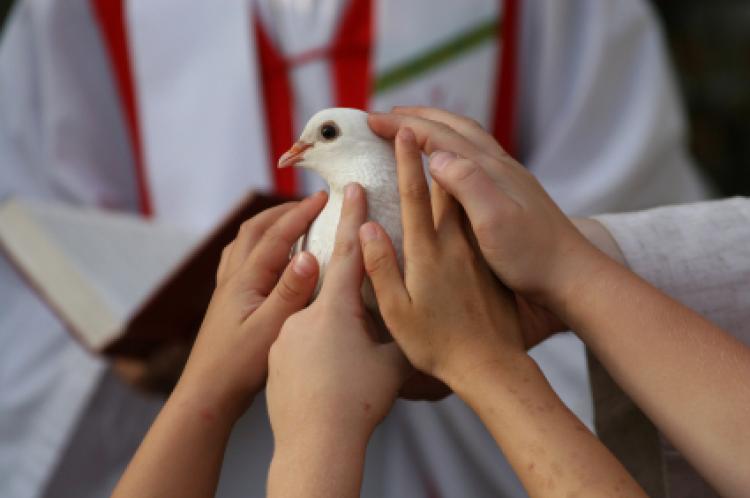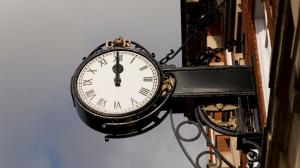
Do You Get a Black Moon?
What is a Black Moon, and why does it happen in December?
Pentecost is a Christian holiday commemorating the descent of the Holy Ghost upon the disciples of Jesus Christ, according to the New Testament of the Bible. It is also known as Whitsunday, or Whit Sunday.

According to Christian texts, the Holy Spirit, often symbolized by a dove, descended on the apostles who received the gift of tongues. Pentecost celebrates this event.
©iStockphoto.com/kharps
In many parts of the world, Pentecost has become a traditional day for baptisms to take place. On this day, many people enjoy family gatherings, picnics, or outings to the country. Pentecost is called "the Green Holiday" in Poland. It is a time when people decorate their houses with green branches to bring blessings on the home and the people living in it. Whitsunday is linked to pagan spring rites, such as the English custom of Morris dancing and the drinking of "Whitsun ale".
In the United States, Christians share their perspective about the meaning of Pentecost as well as how the diversity of languages and cultures can enhance their worship and fellowship with each another. Christians see Pentecost as an expansion of God's favor and care from Judaism to all peoples. Many churches celebrate Pentecost with a mass or worship service on this day.
Whitsunday is a public holiday in some places around the world, including countries in Europe such as Estonia and Finland. It is not a federal holiday in countries such as Australia, Canada, the United Kingdom and the United States.
As recorded in the New Testament of the Bible, it was on the 50th day after Easter that the apostles were praying together and the Holy Spirit descended on them. They received the "gift of tongues", the ability to speak in other language and immediately began to preach about Jesus Christ to Jewish people from all over the world who flocked to Jerusalem for the Feast of Shavuot.
Christian Pentecost became not only a commemoration of the Holy Spirit's visit but also marks the birth of the Christian Church. Although it is not certain when Pentecost began to be observed by Christians, it may have been early as the first century. Whitsuntide, also referred to as Whitsun in modern times, is the period beginning with the Saturday before Whitsunday and ending the following Saturday.
According to church tradition, Pentecost is always about seven weeks after Easter Sunday, or 50 days after Easter, including Easter Day. In some Orthodox churches, Whitsunday is observed after the date set by the western churches. This is because some Orthodox churches still observe holidays according to the Julian calendar, which preceded the Gregorian calendar adopted by many western churches. The Easter date depends on the ecclesiastical approximation of the March equinox.
The symbols of Pentecost are those of the Holy Spirit and include flames, wind, the breath of God and a dove. In Estonia and Finland eggs are dyed as at Easter because their hens don't lay eggs until this time. In Germany the day is called "Pfingsten" and pink and red peonies, called "Whitsun roses", are the symbols along with the birch trees. The English refer to the holiday as Whitsunday with reference to the white garments worn on Pentecost by the newly baptized.
Some churches lower a carved dove into the congregation and call this "swinging the Holy Ghost". Cattle are decorated and an overdressed person is said to be "dressed like a Whitsun ox". A holdover pagan game is called "hunting the green man", a young man dressed in leaves and moss hides, and children hunt him.

What is a Black Moon, and why does it happen in December?

When will the next comet be visible?

Why do mornings keep getting darker after the December solstice?

How does the 12-hour clock system work? Is midnight 12 am or 12 pm?